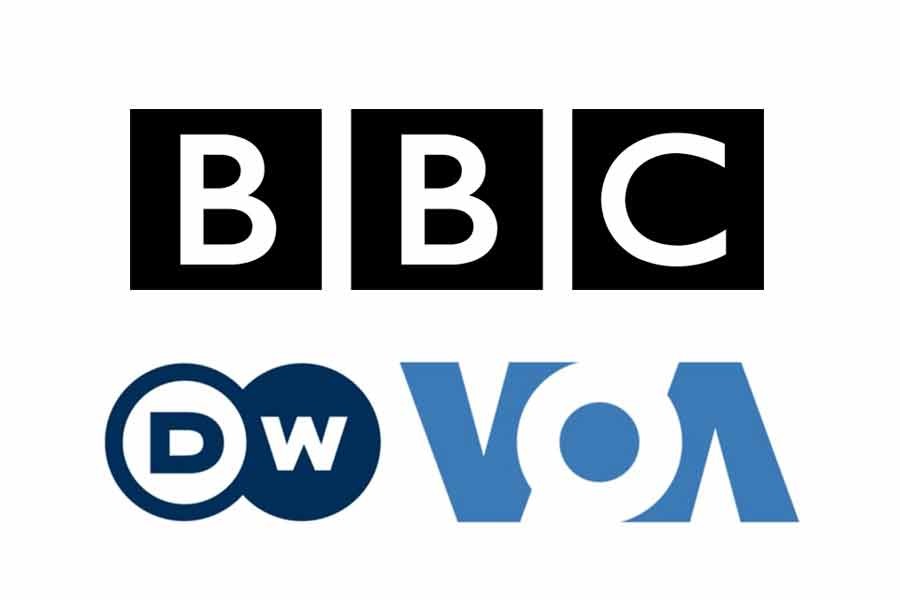Russia cut access to several foreign news organisations' websites, including the BBC and Deutsche Welle, for spreading what it alleged was false information about its war in Ukraine.
Russia has repeatedly complained that Western media organisations offer a partial - and often anti-Russian - view of the world while failing to hold their own leaders to account for devastating foreign wars such as Iraq and corruption, reports Reuters.
Communications watchdog of Russia said on Friday it had blocked the websites of the BBC, Voice of America, Radio Free Europe/Radio Liberty, Deutsche Welle and other media outlets.
"Access has been restricted to a host of information resources owned by foreigners," the watchdog, known as Roskomnadzor, said in a statement.
"The grounds for restricting access to these information resources on the territory of the Russian Federation was their deliberate and systematic circulation of materials containing false information."
It said the media organisations had spread falsehoods about "the essence of the special military operation in Ukraine, its form, the methods of combat operations (attacks on the population, strikes on civilian infrastructure), the Russian armed forces' losses and civilian victims".
The BBC said it would not be deterred by the Russian curbs.
"Access to accurate, independent information is a fundamental human right which should not be denied to the people of Russia, millions of whom rely on BBC News every week," it said.
"We will continue our efforts to make BBC News available in Russia, and across the rest of the world."
The European Union this week banned Russian state-controlled media outlets RT and Sputnik. Facebook owner Meta, Alphabet Inc's Google, YouTube and TikTok are already blocking access to RT and Sputnik in the EU.
Twitter has said it would comply with the EU ban.
INFORMATION
The BBC said on Wednesday it would start broadcasting four hours of news a day in English on shortwave radio in Ukraine and parts of Russia, reviving an antiquated technology used in the Cold War to circumvent state censorship.
The Russian language websites of the BBC and Voice of America could not be opened without using a Virtual Private Network on Friday, a Reuters reporter said. Voice of America's English language site was accessible, but BBC's was not.
Western leaders have for years raised concerns about the dominance of state media in Russia and say the freedoms won when the Soviet Union collapsed in 1991 have been rolled back by President Vladimir Putin.
According to an official notice received on March 3, the Russian communications watchdog said Radio Liberty's Russian service had spread "obviously fake socially significant information about the alleged Russian attack on Ukrainian territory".
"Such information is wrong," Radio Liberty cited the official notice as saying.
Describing the situation in Ukraine has become a sensitive issue in Moscow.
Putin, who has described the West as an "empire of lies", said the "special military operation" was essential to ensure Russian security after the United States enlarged the NATO military alliance to Russia's borders and supported pro-Western leaders in Kyiv.
Russian officials do not use the word "invasion" and say Western media have failed to report on what they cast as the "genocide" of Russian-speaking people in Ukraine.


